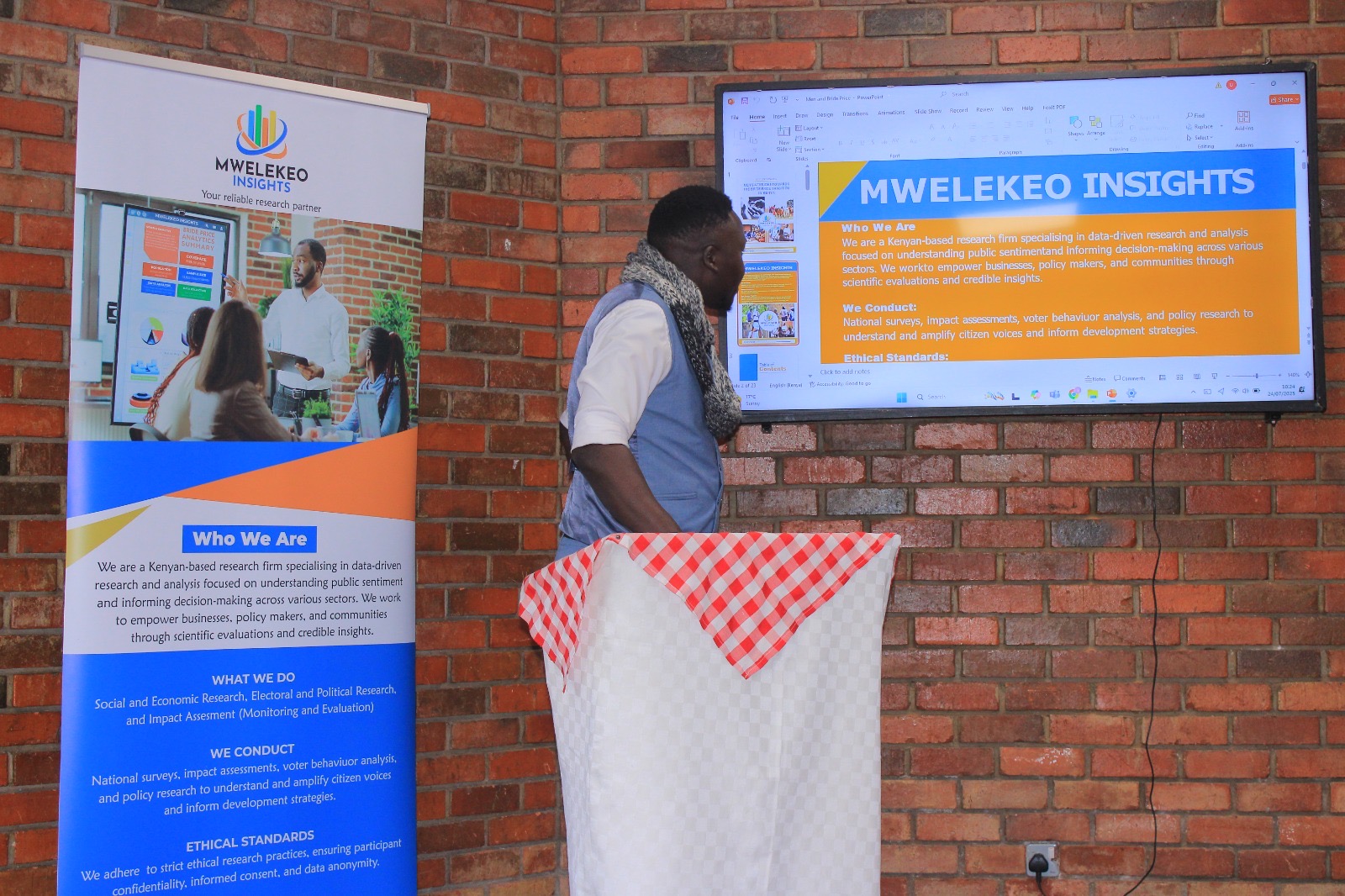Lifestyle
Is Love Still Payable? Mwelekeo Insights Study Shows Bride Price Tradition on the Brink
Men who embrace progressive views on women’s rights are more likely to oppose or seek reforms to bride price, while those with traditional gender role expectations remain supportive.

New study reveals deep generational and geographic rifts over bride price practice
In the bustling matatu stations of Nairobi, 28-year-old James Kimani scrolls through his phone, calculating figures that have nothing to do with his salary or rent.
He’s trying to figure out how much he’ll need for his girlfriend’s bride price—a tradition that’s becoming as contentious as it is expensive.
Kimani’s dilemma captures the essence of a groundbreaking study by Mwelekeo Insights that has peeled back the layers of one of Kenya’s most enduring cultural practices.
The research, which surveyed attitudes toward bride price among Kenyan men, reveals a nation wrestling with its identity as ancient customs collide with modern realities.
The findings paint a picture of a society in flux. While nearly every Kenyan knows about bride price, the study uncovers a fascinating paradox: universal awareness coupled with dramatically divergent interpretations.
For some, it remains a sacred rite that honors families and strengthens bonds. For others, it’s an outdated transaction that commodifies women.
“We’re seeing the DNA of our culture being questioned,” explains Dr. Sarah Wanjiku, a cultural anthropologist at the University of Nairobi who was not involved in the study.
“This isn’t just about money, it’s about identity, gender roles, and what it means to be Kenyan in the 21st century.”
Perhaps the most striking revelation is how geography and age have created distinct camps.
In rural areas, where traditions run as deep as the Rift Valley, older men remain steadfast supporters of the practice.
They view it as non-negotiable—a cornerstone of respect and family unity that has weathered generations.
But step into Kenya’s urban centers, and the narrative shifts dramatically.
Younger, educated men increasingly question the relevance of a tradition they see as financially burdensome and potentially exploitative.
The study reveals that exposure to diverse cultures and higher education correlates strongly with critical views of bride price.
“My grandfather sees it as honoring my future wife’s family,” says Michael Ochieng, a 32-year-old software developer in Kisumu.
“But I see it as starting my marriage in debt. How is that honoring anyone?”
The economic dimension of the debate cannot be ignored.
Kenya’s challenging economic climate has transformed bride price from a symbolic gesture into a potential financial nightmare for many young men.
The study found that affordability concerns drive much of the opposition, with some men delaying marriage indefinitely rather than burden their families with debt.
This economic pressure has sparked innovative discussions about alternatives.
Some families now negotiate symbolic payments, while others explore cost-sharing arrangements that reflect changing gender dynamics.
The influence of feminist awareness, the study notes, has introduced new conversations about fairness and partnership that were previously absent from these negotiations.
At the heart of the bride price debate lies a fundamental question about gender roles in contemporary Kenya.
Traditional supporters argue that the practice demonstrates commitment and responsibility, while critics contend it reinforces patriarchal structures that reduce women to commodities with price tags.
The study reveals that perceptions of fairness and gender equality strongly influence attitudes toward the practice.
Men who embrace progressive views on women’s rights are more likely to oppose or seek reforms to bride price, while those with traditional gender role expectations remain supportive.
“The conversation has evolved beyond just culture versus modernity,” notes Ruth Mumbi, a gender rights advocate. “We’re now asking whether our traditions can coexist with equality, or whether some practices are fundamentally incompatible with progress.”
As Kenya navigates this cultural crossroads, the study suggests that the future of bride price may lie not in its abolition or preservation, but in its transformation.
Some communities are already experimenting with reforms that maintain the symbolic meaning while addressing practical concerns.
The research indicates a growing appetite for dialogue that brings together different generations, urban and rural perspectives, and progressive and traditional viewpoints. This conversation, experts argue, is essential for any sustainable resolution.
“We’re not just talking about bride price,” reflects Dr. Peter Kagwanja, a political analyst. “We’re talking about how Kenya reconciles its past with its future, how we honor our ancestors while building an equitable society for our children.”
The Mwelekeo Insights study has opened a Pandora’s box that reveals the complexity of cultural evolution in modern Africa.
It shows a society grappling with questions that have no easy answers: How do we preserve what makes us who we are while embracing who we want to become?
As young Kenyans like James Kimani weigh their options, they’re not just making personal decisions about marriage and money.
They’re participating in a broader conversation about identity, tradition, and progress that will shape Kenya’s cultural landscape for generations to come.
The bride price debate, it seems, is really about something much bigger—the price of change itself, and whether a nation can afford to pay it while staying true to its roots.
Kenya Insights allows guest blogging, if you want to be published on Kenya’s most authoritative and accurate blog, have an expose, news TIPS, story angles, human interest stories, drop us an email on [email protected] or via Telegram
-

 Business4 days ago
Business4 days agoCooking Fuel Firm Koko Collapses After Govt Blocks Sh23bn Carbon Deal
-

 Business3 days ago
Business3 days agoABSA BANK IN CRISIS: How Internal Rot and Client Betrayals Have Exposed Kenya’s Banking Giant
-

 Politics2 weeks ago
Politics2 weeks agoYour Excellency! How Ida’s New Job Title From Ruto’s Envoy Job Is Likely to Impact Luo Politics Post Raila
-

 Business2 weeks ago
Business2 weeks agoMinnesota Fraud, Rice Saga, Medical Equipment Deal: Why BBS Mall Owner Abdiweli Hassan is Becoming The Face of Controversial Somali Businessman in Nairobi
-

 News2 weeks ago
News2 weeks agoKenya Stares At Health Catastrophe As US Abandons WHO, Threatens Billions In Disease Fighting Programmes
-

 Americas2 days ago
Americas2 days agoEpstein Files: Bill Clinton and George Bush Accused Of Raping A Boy In A Yacht Of ‘Ritualistic Sacrifice’
-

 Politics2 weeks ago
Politics2 weeks agoJaramogi Clan Tells Raila Jr, Winnie Against Disrespecting Their Uncle Oburu, Warns of Curses
-

 News2 weeks ago
News2 weeks agoDCI Probes Meridian Equator Hospital After Botched Procedure That Killed a Lawyer















